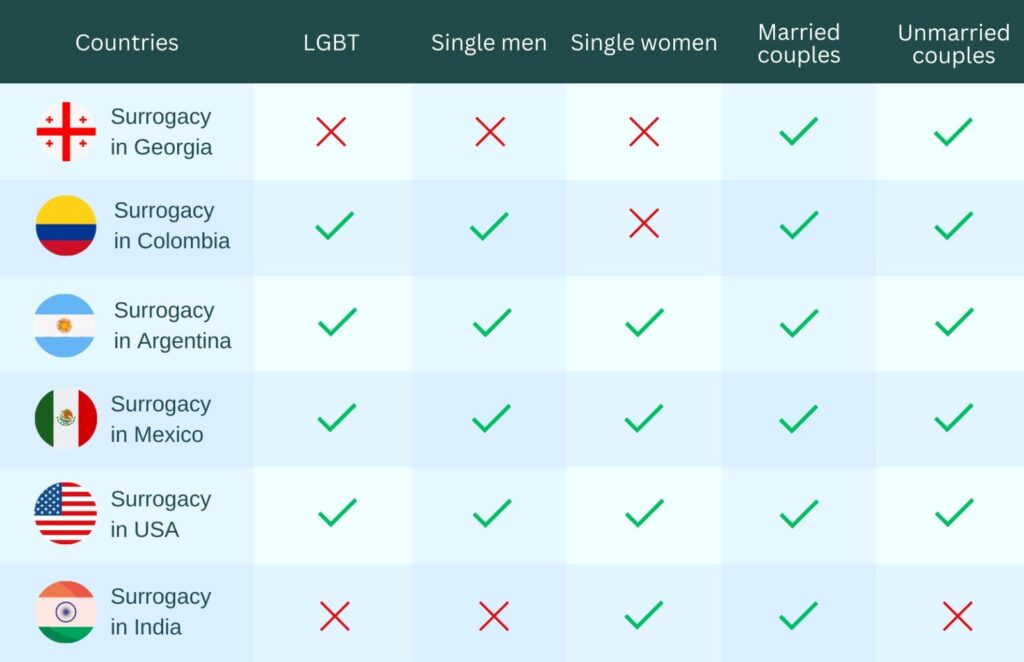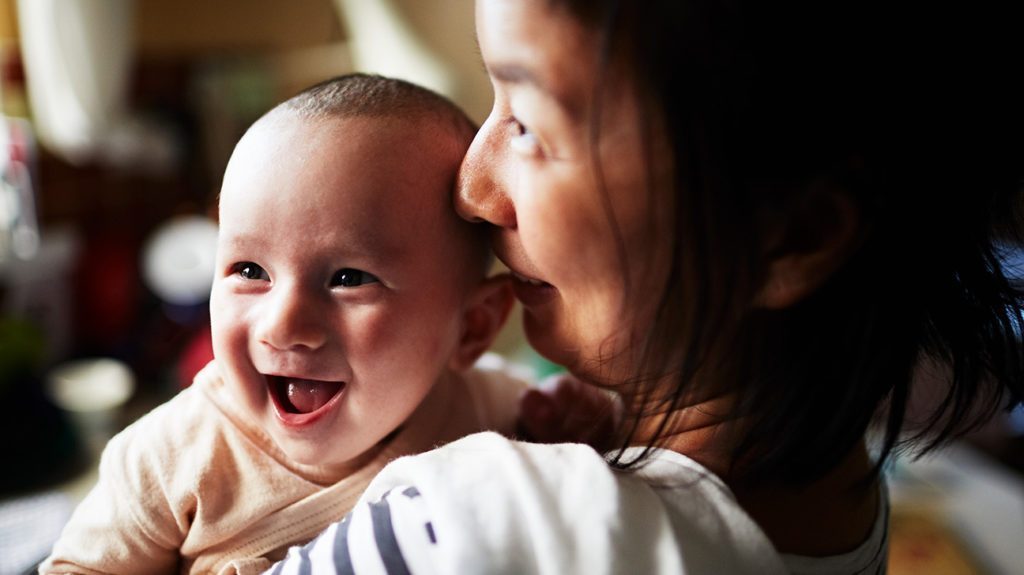Surrogacy in Thailand: Legislation, Costs, and Options (2024 Update)

Thailand was once a popular destination for international surrogacy due to its relatively low costs and highly skilled medical professionals. However, the legal landscape surrounding surrogacy in Thailand has changed significantly in recent years, making it crucial for intended parents to understand the current regulations before pursuing surrogacy in the country.
This blog will provide an in-depth look at the legislation, costs, and options for surrogacy in Thailand in 2024.
Get in touch for a Free Surrogacy Consultancy:
📲 +91-8800481100 ( WhatsApp, Line, Viber)
The key takeaway for Thailand Surrogacy
- Surrogacy is legal – Protection for Children Born Through Assisted Reproductive Technologies Act 2015.
- Married heterosexual residents who have been married for at least three years.
- Compensation to surrogates is not permitted.
- The surrogate must be a family member and be married.
- Legislators are set to submit a proposed law change in 2024 allowing foreigners to pursue surrogacy in Thailand. The new law will include a provision that the intended parents must be married, regardless of sexual orientation, and must provide proof that the child will be granted protection and rights in their home country.
- If this new amendment gains Cabinet approval, the next step is approval by Parliament and the Senate, followed by the signature of the King. This positive quote from the Deputy Director-General of Health services: “We will amend the law that will allow foreign couples to receive surrogacy services here based on regulations.”

Surrogacy in Thailand|Surrogate Mother in Thailand
A few years ago, surrogacy in Thailand was in high demand, especially for international intended parents. However, in mid-2014, significant changes occurred when the Thai government, under military rule, enacted laws that effectively banned commercial surrogacy for foreigners. This legal shift happened abruptly, transforming Thailand from a surrogacy hub to a country with one of the strictest surrogacy laws.
Currently, surrogacy is prohibited for foreigners in Thailand, although a few underground channels still exist. Before the ban, gestational surrogacy was highly sought after due to the country’s top-tier healthcare facilities, affordable costs compared to the UK and the USA, and the availability of healthy egg donors and surrogates.
Thailand’s modern infrastructure and flexible visa policies also made it a popular destination for medical tourism, particularly for infertility treatments (excluding surrogacy).
The rapid increase in international surrogacy cases, coupled with the lack of regulation, ultimately led to the closure of Thailand’s surrogacy market for foreign parents. The new legislation is strict, banning almost all forms of commercial surrogacy, especially for non-Thai citizens.
Legislation on Surrogacy in Thailand
Current Legal Framework
In 2015, Thailand passed the “Protection of Children Born from Assisted Reproductive Technologies Act” (commonly referred to as the “Surrogacy Law”), which made commercial surrogacy illegal for foreigners. The law strictly regulates surrogacy practices, only allowing altruistic surrogacy under specific conditions. Here are the key legal aspects of surrogacy in Thailand:
- Commercial Surrogacy: Illegal for both Thai citizens and foreigners.
- Altruistic Surrogacy: Permitted but only for Thai married heterosexual couples who have been legally married for at least three years.
- Eligibility: The intended parents must be Thai nationals, or one of the intended parents must hold Thai citizenship.
- Surrogacy for Foreigners: Foreign nationals are no longer allowed to pursue surrogacy in Thailand.
- Surrogate Mothers: The surrogate must be a blood relative of one of the intended parents and cannot receive compensation beyond reasonable expenses.
- Same-Sex Couples and Single Parents: Not allowed to pursue surrogacy in Thailand under the current law.
Legal Implications for Foreigners
For foreigners seeking surrogacy, Thailand is no longer a viable option. The legislation clearly prohibits surrogacy arrangements for international couples, making it essential for foreign intended parents to consider other countries that legally allow surrogacy for international couples, such as Mexico, Georgia, or Ukraine.
Costs of Surrogacy in Thailand
As commercial surrogacy is prohibited, there are no established commercial surrogacy programs for international intended parents in Thailand. However, the costs of altruistic surrogacy for eligible Thai couples can still involve medical expenses for IVF treatments and surrogate care. Below is a breakdown of potential costs for a legal altruistic surrogacy journey in Thailand.
| Cost Component | Estimated Cost (THB) | Notes |
|---|---|---|
| IVF Procedures | 200,000 – 400,000 | Cost of IVF cycles, embryo transfer, and medication |
| Legal Fees | 50,000 – 100,000 | Legal contracts and parental rights documentation |
| Surrogate Care (Medical) | 100,000 – 200,000 | Medical and prenatal care for the surrogate |
| Administrative Fees | 50,000 – 100,000 | Miscellaneous administrative expenses |
| Total Estimated Cost | 400,000 – 800,000 THB | Approx. $12,000 – $25,000 |
Please note that these costs are approximate and based on altruistic surrogacy. International intended parents are advised to explore options outside Thailand due to legal restrictions.
Surrogacy Options for Foreigners
Since the 2015 legislation prohibits surrogacy for foreign couples in Thailand, intended parents looking for surrogacy options must consider alternative countries where surrogacy is legal for internationals. Below are some viable alternatives for international surrogacy:
1. Mexico
- Legal Status: Gestational surrogacy is legal in some states, including Tabasco.
- Cost: Typically between $60,000 – $80,000.
- Best For: Both heterosexual and same-sex couples, including international parents.
2. Georgia
- Legal Status: Surrogacy is legal for married heterosexual couples.
- Cost: Around $40,000 – $50,000, making it one of the more affordable options.
- Best For: Married couples looking for cost-effective surrogacy programs.
3. Ukraine
- Legal Status: Surrogacy is legal for married heterosexual couples.
- Cost: $40,000 – $60,000.
- Best For: Heterosexual couples wanting a reliable, affordable surrogacy program.
4. Colombia
- Legal Status: No specific surrogacy law, but surrogacy is allowed.
- Cost: Between $60,000 – $80,000.
- Best For: Same-sex couples and international parents looking for surrogacy in South America.
5. Argentina
- Legal Status: No specific surrogacy law, but surrogacy is allowed through court decisions.
- Cost: $40,000 – $60,000.
- Best For: Both same-sex and heterosexual couples.
Tips for International Intended Parents
Given the restrictions in Thailand, it is crucial for intended parents to choose a country where surrogacy is legal, ethical, and cost-effective. Here are some tips for those exploring international surrogacy options:
- Research the Legal Framework: Every country has its own set of surrogacy regulations. Ensure that the country you choose allows surrogacy for international parents and offers legal protection.
- Consider the Costs: The cost of surrogacy varies by country. While the USA offers robust legal protection, it is also one of the most expensive surrogacy destinations. More affordable options exist in countries like Georgia, Ukraine, and Mexico.
- Work with Reputable Agencies: Choose a surrogacy agency that has a proven track record and can guide you through the legal, medical, and logistical aspects of the surrogacy journey.
More resources:
Top 4 cheapest surrogacy countries
Surrogate mother’s costs explained
Countries where surrogacy is legal ( International Surrogacy)
International surrogacy countries
Gay surrogacy in Colombia and gay surrogacy in Mexico is possible with less than 50% cost of a typical US surrogacy program.
Surrogacy in Cambodia
In November 2016, the Cambodian ministry issued a Prakas which stated that surrogacy by embryo transfer is now prohibited in the country. According to legal experts, the current ban falls short of the actual law against surrogacy. Surrogacy in Cambodia has been stopped completely. The statement passed on by the Ministry of Cambodia prevents other ART infertility treatments that will relate to surrogacy as well.
For example, IVF procedures can continue to take place, oocytes can be imported or exported from the country, and embryos can be conceived and moved to the clinics. Only the embryo transfer procedure has been banned if the recipient is the surrogate.
Some service providers who worked in Cambodia have developed packages to take benefit from the policy by creating cross-border programs with nearby countries. In some cases, the surrogacy agencies offer to conceive embryos in Cambodia and then send them to other places for the process of embryo transfer to surrogate mothers.
The cost of surrogacy in Cambodia is around $60,000 for full IVF cycle surrogacy. But as surrogacy is not legally allowed and there is a much better option available in Latin America, it is advised NOT to do unregulated surrogacy in Cambodia with this cost.
Affordable secure surrogacy in Columbia is a better option.
While the above mentions procedure is not lawful and is risky as well, it is essential to plan your surrogacy in the countries where surrogacy is legal. The high Surrogacy in Cambodia cost is not justified with backchannel surrogacy with no protection for any party.
Couples with limited finance available may either switch to surrogacy in Colombia and Mexico, which are much safer options and have affordable surrogacy costs for single or gay surrogacy couples.
After the foreign surrogacy laws were changed in Thailand, other nearby countries are opening up with possible alternatives. But it goes without saying that these are not safe and not regulated. Some countries like Vientiane have opened two new clinics for surrogacy which can become destinations for the intended parents who want to opt for surrogacy.
Surrogacy in Laos
Laos currently is in the same position as Cambodia in early 2016. There is no law for surrogacy in Laos, and hence surrogacy is practiced in Laos because the government has still not stepped in.
As commercial surrogacy is banned in Thailand, and surrogacy is banned in Cambodia, Laos is becoming the next destination for the intended parents to plan their surrogacy in Asia. The typical surrogacy agents are from Thailand only and are looking for new locations to continue their operations.
Laos is interestingly ready to have a severe response to surrogacy programs in the nation. The nation is one of the most straightforwardly socialist systems in the world, and the nearby government is seen universally as a dictator. Therefore, the neighboring government is probably not going to be respectful of Western laws, and they likely will have little regard for guests who they feel might misuse their distraught residents.
The cost of surrogacy in Laos is equivalent to Thailand’s surrogacy cost, which is around $60,000.
Moreover, Laos is currently fighting ongoing practices like sex trade and human laws trafficking. Hence, authorities are worried about the exploitation of women. They are on alert for any instances related to sex trafficking or human exploitation.
All this situation leads to the high danger of surrogacy in Laos. While the administration may not break down for a while, the development by the legislature is probably going to be quick and extensive.
The mother giving birth will be viewed as the legitimate parent, and the intended father may likewise be conceded half parental rights. The birth certificate will be issued with the name of the intended father and surrogate.
To return home with the infant, the intended father must get the full legal parentage of the baby and get the surrogate’s legitimate authorization to enroll the birth with his name.
Put together the intended father needs permission and authorization of the surrogate mother to take the baby home.
Laos surrogacy cost is much higher for an Asian country but having not many options for parents makes them susceptible to opting for Laos surrogacy.
Conclusion
While Thailand once held a prominent place in international surrogacy, the 2015 legal reforms have drastically changed the landscape, making it an unviable option for foreign intended parents.
Altruistic surrogacy is still an option for married Thai couples, but those from outside Thailand will need to seek alternative surrogacy-friendly countries. Countries such as Mexico, Georgia, and Ukraine offer affordable surrogacy options for both heterosexual and same-sex couples.
If you’re considering surrogacy abroad, always seek professional advice and work with reputable agencies to ensure a smooth, legally compliant surrogacy journey.
Get in touch for a Free Surrogacy Consultancy:
📲 +91-8800481100 ( WhatsApp, Line, Viber)
More resources on this topic:
Surrogacy In Mexico-Everything Intended Parents Need To Know
Surrogacy in Colombia- Everything You Need to Know
Best Countries for Surrogacy ( In 2023)That Parents Need To Know
Our Affordable International Surrogacy Programs and Plans
Gestational Surrogacy is an expensive enterprise. At IVF Conceptions, we believe that money should not be a reason for not becoming a parent.
That is why we continuously work to find affordable surrogacy with donor egg options in the USA and outside the USA.
Over the year, we have developed a unique relationship with numerous IVF Clinics and surrogacy agencies, egg donor agencies, legal professionals, and logistic support teams. Thus, we can offer the most trusted and affordable surrogacy services in multiple countries.
Each couple has different surrogacy requirements, we manage each case individually with personal care and attention. Contact us to learn more.
If you’d like to learn more about IVF, Egg Donation, and surrogacy services worldwide, check out the rest of our website at IVF Conceptions. We offer legally secure and affordable surrogacy consulting services for FREE.
More resources for Legal International Surrogacy countries:
- Surrogacy in Mexico
- Surrogacy in Ukraine
- Surrogacy in Georgia
- Surrogacy in Colombia
International Surrogacy Cost in 2024
So, how much can surrogacy cost by country? The answers depend on which country and what specific services you choose. Please see below our international surrogacy services, which are affordable yet trusted and secure.
#1. USA (Los Angeles)- For All Parents
How much does surrogacy cost in the USA? The average cost of services in the USA ranges from $130,000 to $150,000.
IVF & surrogacy is done in one of the leading fertility and best clinics in LA. The full package includes your surrogate, clinic procedures, & legal fees. Available to all married couples, singles, and LGBT couples seeking surrogacy.
#2. Guarantee Surrogacy Baby in Colombia, Bogota- For all parents
How much does gay surrogacy cost in Colombia? – The cost of IVF, egg donor, and surrogacy with an all-inclusive guaranteed surrogacy baby is $65,000.
#3. Guaranteed Surrogacy Baby in Tbilisi, Georgia- For married couples
How much does surrogacy in Georgia cost? The secure or guaranteed baby cost in Georgia is 67,000 USD. This is a fixed-price program with unlimited clinic & admin services until you are home with your baby. We are proud to offer the most affordable, secure, and reliable surrogacy programs in Bogota with the team having more than 13 years of experience in global surrogacy services.
#4. IVF with Egg Donor & Surrogacy in Mexico- For all parents.
How much does surrogacy cost in Mexico? The guaranteed baby surrogacy in Mexico is available for 66,900 USD. Fixed-price programs with unlimited clinic & admin services until you are home with your baby. We are proud to offer the most affordable, secure, and reliable surrogacy programs in Mexico City with the team having more than 13 years of experience in global surrogacy services.
If you’d like to learn more about IVF, Egg Donation, or surrogacy services globally, check out the rest of our website: IVF Conceptions. We offer legally secure and affordable surrogacy consulting services for FREE.
 FAQs about the Cost of Surrogacy in Thailand.
FAQs about the Cost of Surrogacy in Thailand.
Is surrogacy legal in Thailand?
No, surrogacy is not legal for international intended parents in Thailand. In 2015, Thailand passed a law that banned commercial surrogacy, making it illegal for both Thai and foreign intended parents.
The law restricts surrogacy to married heterosexual Thai couples who have been married for at least three years and have a medical incapacity to gestate. Only altruistic surrogacy, where the surrogate does not receive payment beyond reimbursement for medical expenses, is permitted. The law also prohibits the intervention of agencies or promotion/publicity in the surrogacy process.
How much does surrogacy cost in Thailand?
The approximate cost of surrogacy in Thailand is between $60,000 and $70,000. The total cost may vary depending on factors such as the number of transfers required, multiple pregnancies, or the need for a cesarean section. It’s important to note that additional funds are usually required to cover any unforeseen medical or legal complications.
Where is the lowest cost of surrogacy in the world?
The lowest cost of surrogacy is in Georgia, Mexico, and Colombia. The average cost of surrogacy is around $50,000 to $60,000 USD.
While surrogacy costs can vary greatly depending on the destination and specific circumstances, countries like Ukraine, Colombia, and Mexico are known to offer more affordable surrogacy programs compared to other locations. These countries have established surrogacy laws and regulations that provide clarity and often lower costs for intended parents.
Which country has the best surrogacy?
Determining the “best” country for surrogacy depends on individual preferences and needs. Several countries have established surrogacy programs and regulations, including the United States, Canada, Ukraine, Georgia, and Mexico.
These countries offer various legal frameworks, expertise, and support systems for intended parents. Choosing the best country for surrogacy involves considering factors such as legal protections, cost, accessibility, medical expertise, and cultural compatibility.
It’s worth mentioning that surrogacy laws and regulations can change over time, so it’s crucial to consult with legal experts or agencies specialized in surrogacy to obtain the most up-to-date information and guidance on the specific country of interest.
References Used:





 FAQs about the Cost of Surrogacy in Thailand.
FAQs about the Cost of Surrogacy in Thailand. 